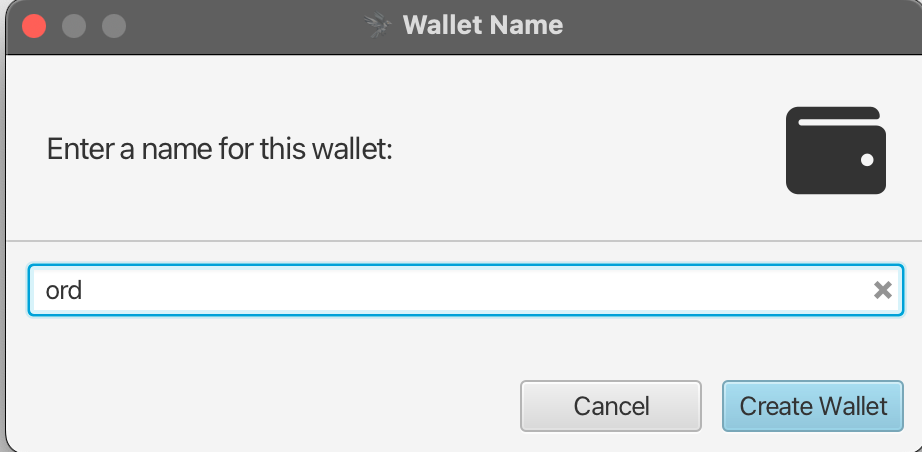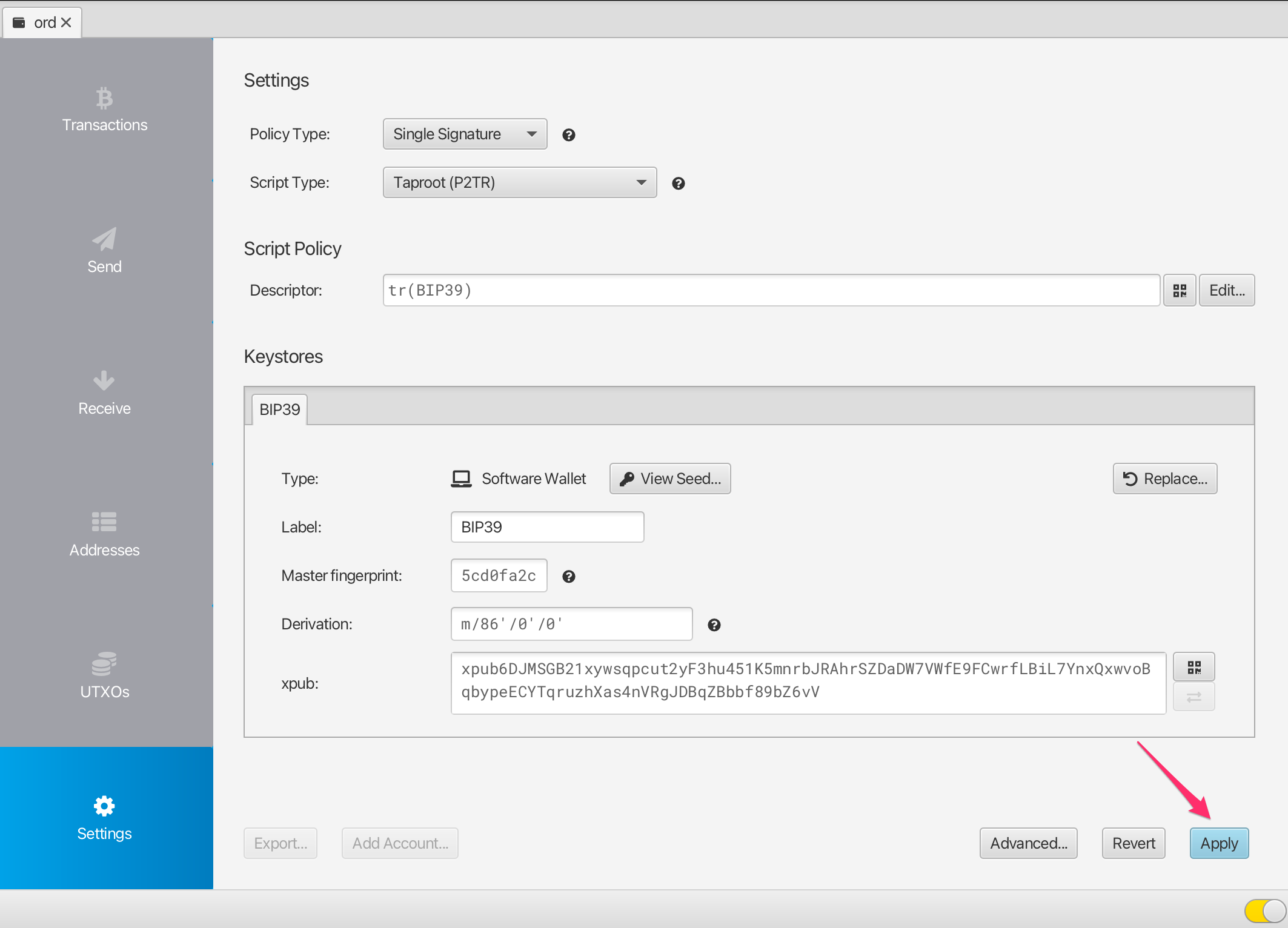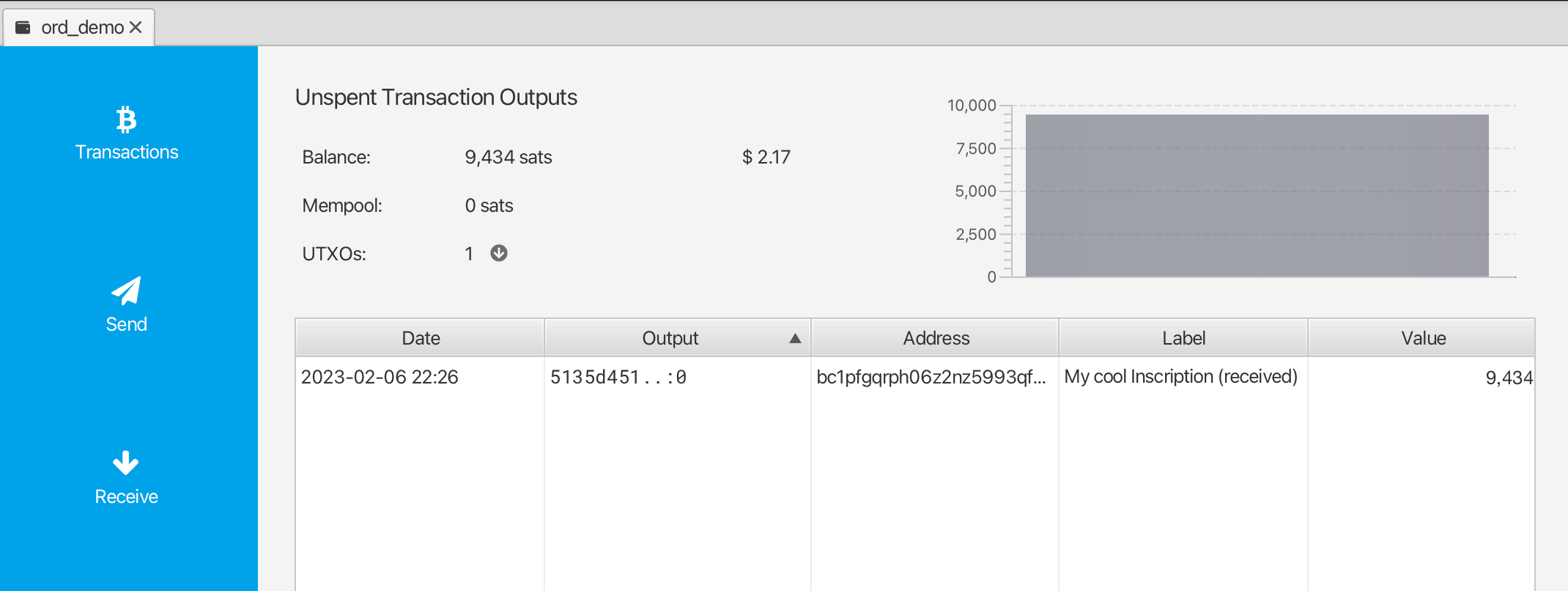Users who cannot or have not yet setup the ord wallet can receive inscriptions and ordinals with alternative bitcoin wallets, as long as they are very careful about how they spend from that wallet.
This guide gives some basic steps on how to create a wallet with Sparrow Wallet which is compatible with ord and can be later imported into ord
As a general rule if you take this approach, you should use this wallet with the Sparrow software as a receive-only wallet. Do not spend any satoshis from this wallet unless you are sure you know what you are doing. You could very easily inadvertently lose access to your ordinals and inscriptions if you don't heed this warning.
Download the Sparrow Wallet from the releases page for your particular operating system.
Select File -> New Wallet and create a new wallet called ord

Change the Script Type to Taproot (P2TR) and select the New or Imported Software Wallet Option
Select Use 12 Words and then click the Generate New Button. Leave the passphrase blank
A new 12 word BIP39 seed phrase will be generated for you. Write this down somewhere safe as this is your backup to get access to your wallet. NEVER share or show this seed phrase to anyone else.
Once you have written down the seed phrase click Confirm Backup
Re-enter the seed phrase which you wrote down, and then click Create Keystore
Click Import Keystore
Click Apply. Add a password for the wallet if you want to.
You now have a wallet which is compatible with ord, and can be imported into ord using the BIP39 Seed Phrase. To receive ordinals or inscriptions, click on the Receive tab and copy a new address.
Each time you want to receive you should use a brand new address, and not re-use existing addresses.
Note that bitcoin is different to some other blockchain wallets, in that this wallet can generate an unlimited number of new addreses. You can generate a new address by clicking on the Get Next Address button. You can see all of your addresses in the Addresses tab of the app.
You can add a label to each address, so you can keep track of what it was used for.
Once you have received an inscription you will see a new transaction in the Transactions tab of Sparrow, as well as a new UTXO in the UTXOs tab.
Initially this transaction may have an "Unconfirmed" status, and you will need to wait for it to be mined into a bitcoin block before it is fully received.
To track the status of your transaction you can right click on it, select Copy Transaction ID and then paste that transaction id into mempool.space
Each of your inscriptions is stored in an Unspent Transaction Output (UTXO) which can be viewed in the UTXOs tab.
Once the transaction has confirmed, you can validate and view your inscription by heading over to the UTXOs tab, finding the UTXO you want to check, right clicking on the Output and selecting Copy Transaction Output. This transaction output id can then be pasted into the ordinals.com search.
As explained above, each of your inscriptions is stored in an Unspent Transaction Output (UTXO). You want to be very careful not to accidently spend your inscriptions, and one way to make it harder for this to happen is to freeze the UTXO.
To do this, go to the UTXOs tab, find the UTXO you want to freeze, right click on the Output and select Freeze UTXO.
This UTXO (Inscription) is now unspendable within the Sparrow Wallet until you unfreeze it.
For deatils on setting up Bitcoin Core and the ord wallet check out the Ordinals Handbook
When setting up ord, instead of running ord wallet create to create a brand new wallet, you can import your existing wallet using ord wallet restore "BIP39 SEED PHRASE" using the seed phrase you generated with Sparrow Wallet.
There is currently a bug which causes an imported wallet to not be automatially rescanned against the blockchain. To workaround this you will need to manually trigger a rescan using the bitcoin core cli:
bitcoin-cli -rpcwallet=ord rescanblockchain 767430
You can then check your wallet's inscriptions using ord wallet inscriptions
Note that if you have previously created a wallet with ord, then you will already have a wallet with the default name, and will need to give your imported wallet a different name. You can use the --wallet parameter in all ord commands to reference a different wallet, eg:
ord --wallet ord_from_sparrow restore "BIP39 SEED PHRASE"
ord --wallet ord_from_sparrow wallet inscriptions
bitcoin-cli -rpcwallet=ord_from_sparrow rescanblockchain 767430
Make sure that your wallet is connected to a bitcoin node. To validate this, head into the Preferences-> Server settings, and click Edit Existing Connection
From there you can select a node and click Test Connection to validate that Sparrow is able to connect sucessfully










